What are the realistic possibilities when it comes to injecting testosterone?
Believe it or not, testosterone is still being studied for how it affects muscle growth. Despite the massive size of bodybuilders since before Arnold Schwarzenegger’s era and BALCO all over the sports world, the particulars of whether testosterone can cause muscle growth were recently studied in the USA. I have even heard the claim that supplemented testosterone and anabolic steroids (such as Dbol) just cause the user to bloat up with excess water and never really gain any muscle. With the history behind testosterone (and other anabolics) and its use among recreational lifters, analytic fitness types have to ask what the evidence is for the muscular effects of testosterone supplementation.
Today, we examine one study that sought to examine these effects. This study was published in 2001. These researchers looked at the response of males to different doses of testosterone.
Methods
The study lasted 20 weeks and involved all male participants. Everyone was screened to ensure they were healthy to start. They reported to have lifted in the past but were not doing anything consistently for the last year. This was not a training study. The participants were told to not work out during the study (Men, receiving legal T, told to not lift weights…). Remember this.
In order to control the levels of testosterone, the researchers started by giving the participants a drug that suppressed their own natural testosterone production. Participants received that drug throughout the study.
There were 5 groups, each of which received a different dose of testosterone. Each week they were injected with the testosterone by a researcher. Neither knew the dosage. The first group had 25 mg/wk, the second 50 mg/wk, third 125 mg/wk, fourth 300 mg/wk, and the fifth had 600 mg/wk.
Below are the starting descriptive stats for the groups. As always, they’re group averages and rounded to the nearest whole number for the ease of viewing.
Everyone kept food diaries to give to the researchers and were told to maintain their normal diets.
All participants had pre/post measurements of their body composition, 1RM in the leg press machine, power via a leg extension machine, psychological tests for sexual function/depression & mania/spatial cognition, and blood work. Their body composition was measured via a combination of techniques: DEXA scans, underwater weighing, and MRIs of their quads/overall thighs. Labeled water was also used to measure how much water the participants retained. This was used to determine if excess water retention occurred.
Results
As expected, the natural production of testosterone dropped and the subsequent supplemented levels in the blood of the participants followed the doses they were given. Below are the baseline natural levels of testosterone in the participants and the levels following the injections. I noted the range that is considered “normal” in the general population of males of the same ages.
The lower level groups (25 & 50 mg/wk) gained fat while the higher level groups (300 & 600 mg/wk) lost fat. The lean mass (LBM) of the groups followed a dose-dependent response. As the testosterone levels increased so did the LBM. Below is the breakdown of their weight changes.
Below are graphs taken from the paper showing the changes in overall muscle and fat.
Below are graphs taken from the paper showing the changes in the overall thigh muscles and the quads specifically.
Below is a chart showing the changes in leg press strength, as well as a graph taken from the paper.
The results of the labeled water tests found no difference in the proportion of water before and after the testosterone supplementation. The high level groups that gained a lot (up to 19 lbs!) of LBM did not retain excess water.
There was no difference in the results of the psychological tests after the testosterone supplementation. No one lost sexual desire, got roid rage, or became Tetris geniuses.
Two of the blood tests were affected by the testosterone levels. The 50 mg/wk group decreased hemoglobin levels while the 600 mg/wk group increased levels. The HDL levels were negatively correlated with the testosterone levels. As the testosterone levels increased, the HDL levels decreased. The rest of the blood test results did not differ by the end of the study.
Thoughts & Implications
This study found that high doses (“supraphysiological levels”) of testosterone resulted in some hefty increases in muscle. Mind you, these participants did not hit the gym (…supposedly). That’s some major gainz! Was it the same for everyone? Not necessarily! Below are 3 scatterplots taken from the paper. They show the changes in overall LBM, leg strength, and quad muscle size based on how much testosterone the participants had. The x-axis is the level of testosterone in the blood and in the y-axis are the changes (kg or cubic cc).
As you can see, there are participants that had less gainz than others even though they had higher levels of testosterone. Those supraphysiological levels are pretty high. There were some participants that had half the testosterone concentration and made just as many gainz. Maybe there’s a ceiling effect of testosterone and higher concentrations in the blood do not result in any further gainz. Just as well, maybe we have a collection of “non-responders”, “moderate-responders”, and “super-responders”… (hint, this is a topic for future journal clubs)
Plain & Simply
We cannot confuse these gainz with the sudden ability to be a proficient athlete or competitive bodybuilder. What they relate more to, I think, is establishing the fact that taking testosterone will give you bigger muscles (and not just from bloating up) without any time in the gym.
Undoubtedly, some readers are wondering what the interaction is between the supraphysiological levels of testosterone and weight lifting. What happens when these levels of testosterone meet the gym?! We get into just that topic next week!
If you have any questions about this study or anything I said, please feel free to leave a comment. I will get back to you and others may have insight to offer, too. If you have any questions or topic suggestions that you would like answered as a post, then please email me at robert@analyticfitness.com.
Don’t forget to like Analytic Fitness on Facebook, or follow me on Twitter or the other social medias!
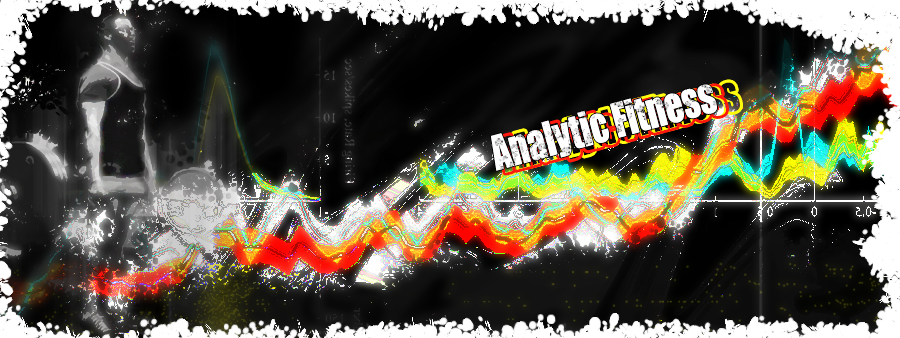
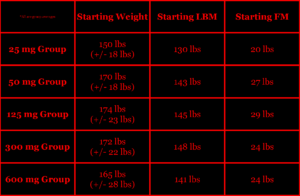
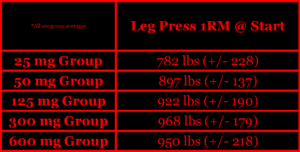
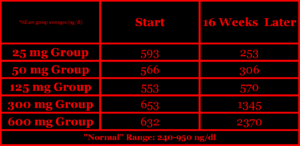
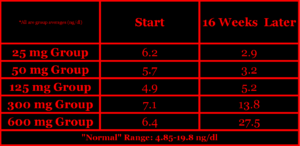
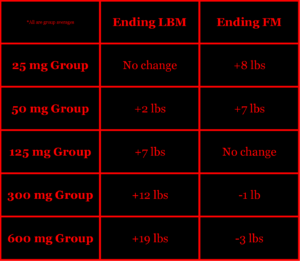
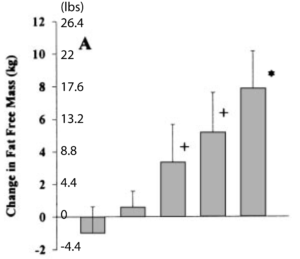
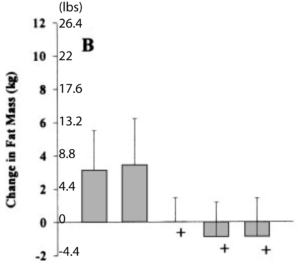
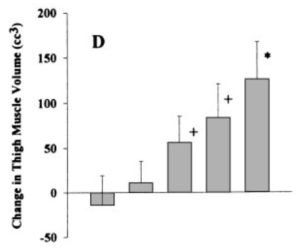
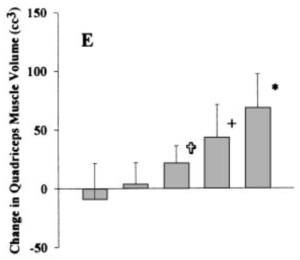
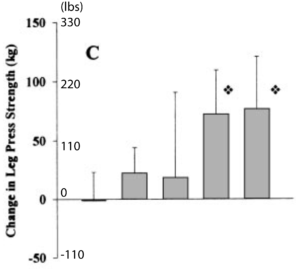
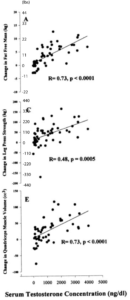




POST REPLY